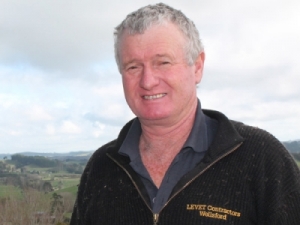Visa changes bring fresh woes
Rural Contractors NZ says members are frustrated at having to work through more layers to get visas approved for skilled seasonal machinery operators ahead of the imminent season start. Andrew Olsen comments.
 Agricultural contractors around the country must play their part in helping to prevent the spread of the invasive weed velvetleaf, says Rural Contractors NZ president Steve Levet.
Agricultural contractors around the country must play their part in helping to prevent the spread of the invasive weed velvetleaf, says Rural Contractors NZ president Steve Levet.
Agricultural contractors around the country must play their part in helping to prevent the spread of the invasive weed velvetleaf.
This is the message from Rural Contractors NZ (RCNZ) president Steve Levet.
Levet is reminding contractors about the importance of biosecurity and machinery hygiene practices on, and between farms, in controlling the spread velvetleaf and says rural contractors have an important role to play in this.
"Contractors need to be conscious of the potential of spreading velvetleaf when moving between properties, or between areas of the same property, and to take responsibility in managing these risks," he says.
Velvetleaf plant seeds can be spread by the movement of vehicles, machinery, feed or stock. It can also spread to new areas of the same property, between neighbouring properties, or even between regions.
Levet says by implementing some simple biosecurity practices rural contractors can help protect the spread of unwanted pest plants such as velvetleaf.
"Farmers and other professional operators in the rural sector like contractors need to pull together to help protect our agricultural sector from the spread of velvetleaf and other pests. I just want to remind rural contractors to stay vigilant and keep up sound biosecurity practices."
Levet says RCNZ has worked with national pest agencies to produce guidelines for machinery hygiene to prevent the spread of pests and weeds, which includes a hygiene logbook:
Waikato dairy farmer Neil Bateup, made a companion of the New Zealand Order of Merit (CNZM) in the New Year 2026 Honours list, says he’s grateful for the award.
Another Australian state has given the green light to virtual fencing, opening another market for Kiwi company Halter.
Farmer interest continues to grow as a Massey University research project to determine the benefits or otherwise of the self-shedding Wiltshire sheep is underway. The project is five years in and has two more years to go. It was done mainly in the light of low wool prices and the cost of shearing. Peter Burke recently went along to the annual field day held Massey's Riverside farm in the Wairarapa.
Applications are now open for the 2026 NZI Rural Women Business Awards, set to be held at Parliament on 23 July.
Ravensdown has announced a collaboration with Kiwi icon, Footrot Flats in an effort to bring humour, heart, and connection to the forefront of the farming sector.
Forest & Bird's Kiwi Conservation Club is inviting New Zealanders of all ages to embrace the outdoors with its Summer Adventure Challenges.